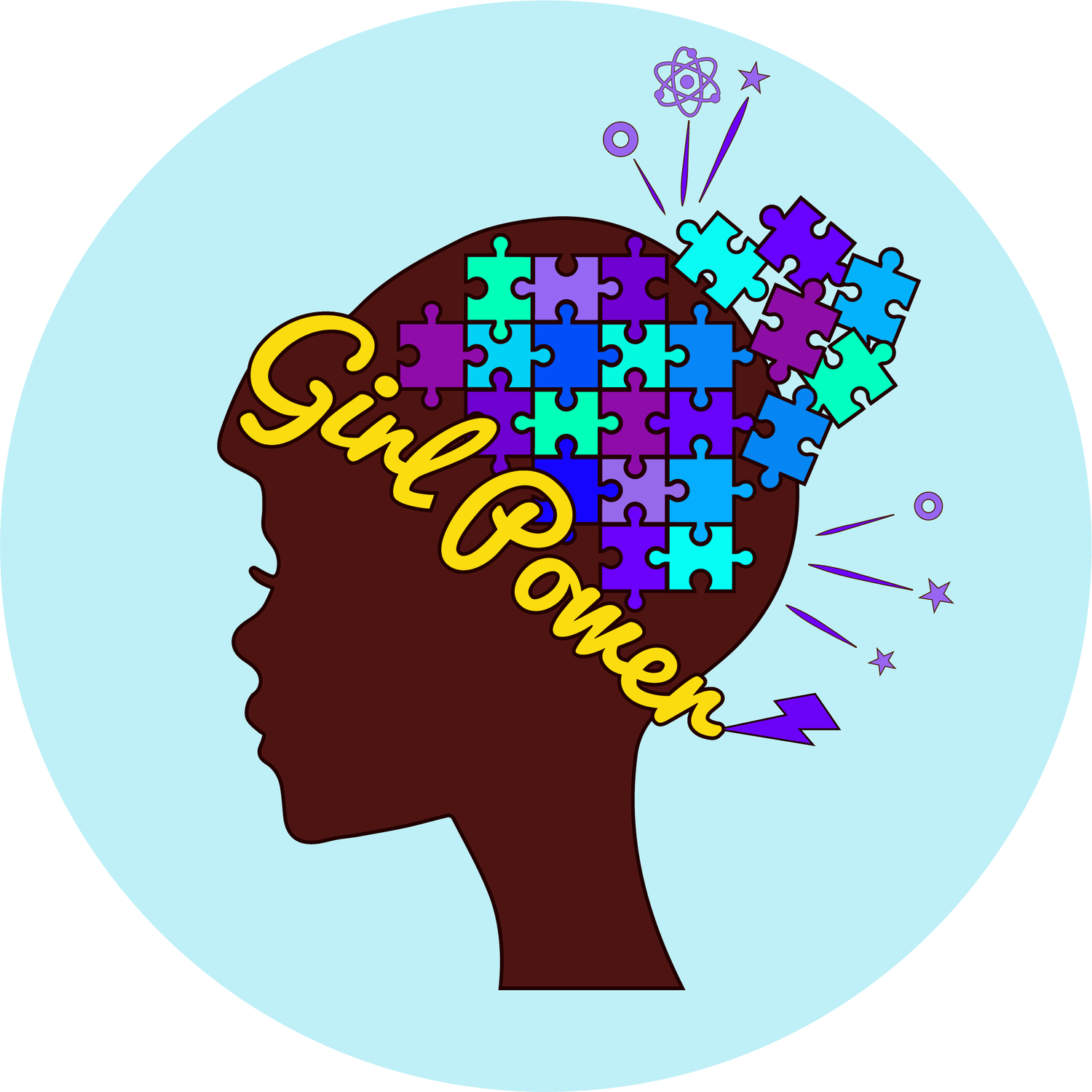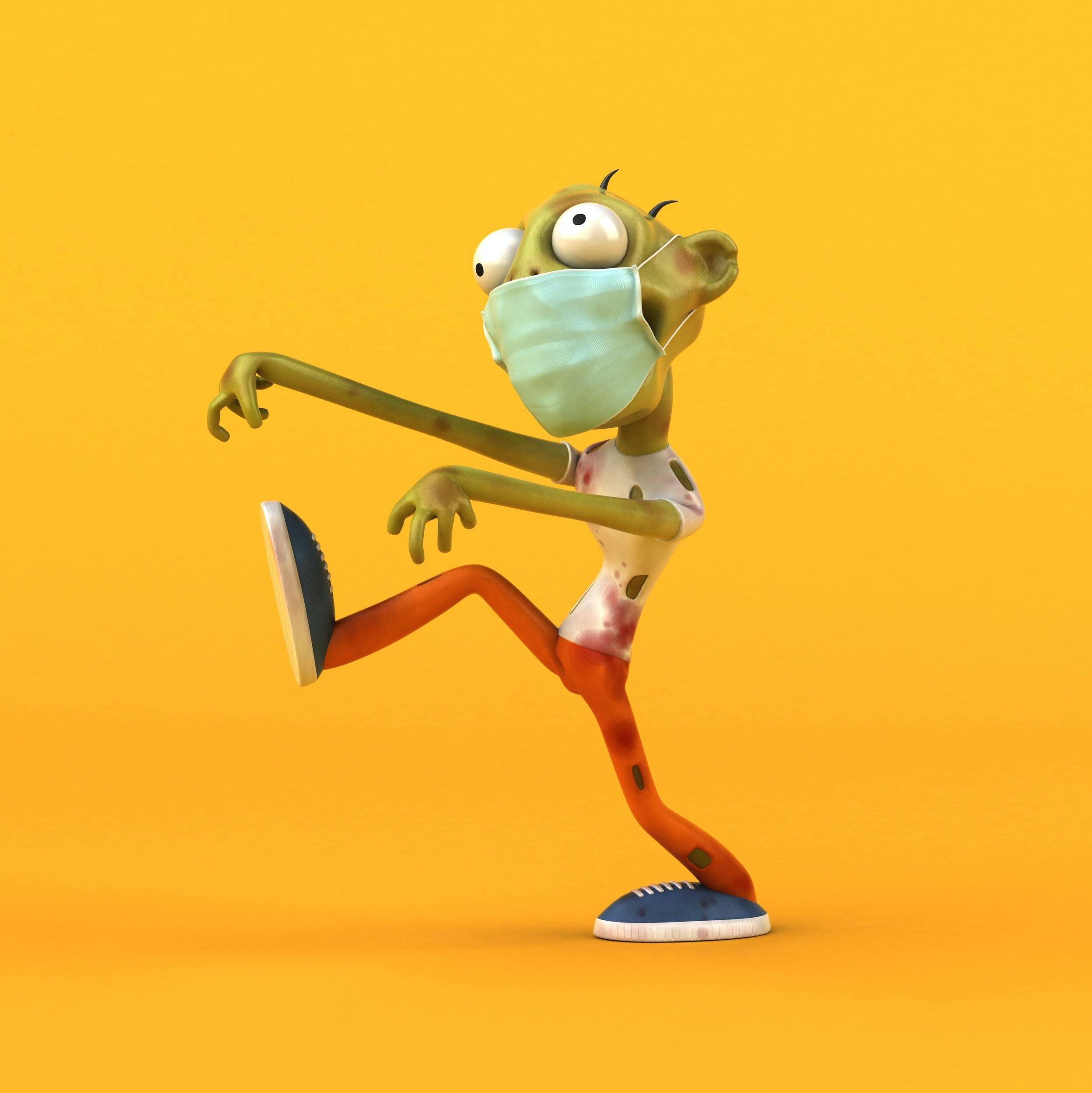How to Cope with Zombie Apocalypse PTSD
By: Konika Ray Wong, M.Ed
As the founder of Girl Power Science, I work directly with children, parents, and teachers across the globe. I’ve been noticing signs of mild post traumatic stress disorder in some of the kids and grownups I work with. I know I definitely see signs within myself as both a parent and a teacher. Post traumatic stress disorder (PTSD) is a condition in which people have trouble recovering after experiencing a terrifying event. Triggers that bring back memories of the event can cause intense emotional and physical reactions.
Because the pandemic is lasting so much longer than we expected, our collective trigger is a chronic event with an ambiguous endpoint. While most of us reading this blog are experiencing the pandemic from a relatively privileged perspective the impact is still very real. For those of us living in the Bay area, we all remember that ominous orange sky on September 9, 2020 and it certainly felt like a zombie apocalypse. We’ve experienced cascading collective traumas including wildfires, school closures, and even tsunami warnings.
Children are showing signs of ongoing stress and it’s beyond exhausting for parents and teachers who are caring for their kids with their own mild PTSD in the background. It’s the perfect recipe for burnout. I am hearing folks talk about feeling depressed a lot lately. It makes sense.
The kids that I work with are eager to talk about their feelings and how the pandemic has impacted their lives. They patiently awaited the vaccine and had hopes and dreams that life would feel like 2019 after they got vaccinated. Then, right after they got their shot, all of their hopes were dashed by Omicron. We faced yet another holiday season fraught with risk calculations about travel and safely seeing family. Of course, we can’t forget the zero to four year olds that have yet to be vaccinated. The Omicron surge is terrifying for that subset and their parents and caregivers.
In 1959, president John F. Kennedy said, “The Chinese use two brush strokes to write the word ‘crisis.’ One brush stroke stands for danger; the other for opportunity.” According to Dr. Victor H. Mair, a professor of Chinese Language and Literature at the University of Pennsylvania, “The word “crisis” (wēijī) consists of two syllables that are written with two separate characters, wēi and jī. While it is true that wēijī does indeed mean “crisis” and that the wēi syllable of wēijī does convey the notion of “danger,” the jī syllable of wēijī most definitely does not signify “opportunity.” The jī of wēijī, in fact, means something like “incipient moment; crucial point when something begins or changes.”
I think we are potentially at the turning point. We have the ability to transform the stress we are feeling into actions that can collectively create a powerful movement for change. The Black Lives Matter movement gained momentum during the pandemic because the lockdown helped us slow down, pay attention, and reassess our priorities.
So what actions can we take? What can we do about this feeling of existential dread? These thoughts can feel very heavy. Here are five tools and strategies to help brighten our outlook.
Create a consistent and predictable routine that includes self care and stick to it. Self care might include exercise, mindfulness, and eating healthy meals.
Focus on friendships. With all of the social distancing in place, it is easy to disconnect with friends. Carving out time for social connections can be as simple as picking up the phone and talking to a friend once a week. Schedule outdoor, masked playdates for your little ones. Prioritize play!
Dig deeper into your gratitude practice. Challenge yourself to go beyond making a list of what you are grateful for. Examine the privileges you have and take action in ways that leverage that privilege to help others in need.
Lose yourself in a passion project. This is a great time to find a cause that you and your kids feel strongly about and dive deep into making a difference. Simple stewardship projects such as beach cleanups, habitat restoration, water conservation, and gardening to attract biodiversity are a great start. Starting small, segues into tackling more complex issues such as climate change and racism. Taking a deep dive into making environmental and social change fuels our sense of purpose.
Talk to a therapist. The pandemic had a ripple effect on so many areas of our personal lives. Talking to a professional therapist and/or scheduling time for our children to work with a therapist can work wonders.
Increasing our sense of connection to the world around us gives us meaning in life and shifts our perspective. We’ve got this. If we survived what felt like the zombie apocalypse, think of what we can tackle next!

